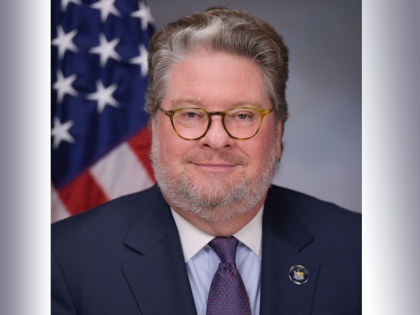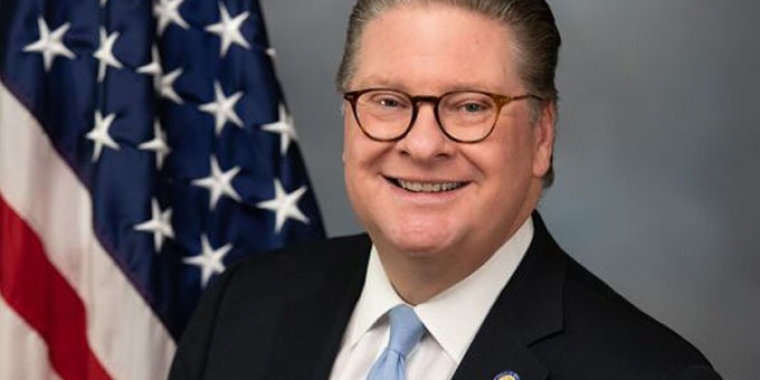
Harckham Hosts Virtual Meeting on Challenges from Pandemic Crisis for Substance Use Treatment Providers
May 12, 2020
-
ISSUE:
- Coronavirus Pandemic; COVID-19
- Alcoholism and Drug Abuse
- Alcoholism and Substance Abuse
- Addiction and Overdose Prevention

South Salem, NY – New York State Senator Pete Harckham and more than a dozen behavioral health professionals and advocates met via a virtual conference yesterday to discuss the serious challenges that Substance Use Disorder treatment programs are facing while the novel coronavirus pandemic continues.
Each of the conference participants first reported on how the coronavirus had impacted their organizations while balancing treatment requirements and safety concerns. Staffing shortages were noted, as staff members and clients tested positive of the coronavirus, and even died from associated complications. And treatment providers talked about shifting resources to procure personal protective equipment (PPE). On the positive side, many agreed that telehealth options, not generally employed beforehand, seemed to work out for both clients and clinicians.
“Ensuring proper treatment for Substance Use Disorder and behavioral health issues is demanding and complex under normal circumstances, and during the current health emergency it has become immeasurably more difficult,” said Harckham. “It is obvious from the comments shared during the conference that organizations involved in this kind of medical care and counseling need more resources and funding to serve those who need help. Yet, I’m also struck by how resilient and dedicated these behavioral health and treatment professionals are. To maintain their high-quality of assistance in this pandemic is both exemplary and remarkable.”
A number of problems with the delivery of treatment services persisted even as providers adapted to arduous conditions necessitated by social distancing requirements. Making sure patients had access to their medications was a chief complaint, and concern about confidentiality issues with telehealth was another.
Additionally, a large decrease in billings for services, as clients have not been able to meet person-to-person for treatment, has put providers in precarious financial straits.
Many people getting help are falling through the cracks, nonetheless. Ann-Marie K. Foster, president and CEO, New York of Phoenix House, stated that the Covid-19 crisis caused a rise of in-patient self-discharges; and Tracie Gardner, vice president of policy advocacy at Legal Action Center noted that recently released individuals from incarceration may not have their Medicaid benefits active, and may no longer be receiving medication to prevent substance use.
“Of greatest concern to the local mental health commissioners is making sure the agencies that provide substance abuse treatment services have what they need to help sustain the recovery of people seeking treatment,” said Michael J. Piazza, Jr., Commissioner of the Putnam County Department of Social Service and Mental Health. “The Covid-19 virus presented many challenges to the fulfillment of that mission. The isolation and the financial stresses caused by the pandemic have us very concerned regarding the future misuse of alcohol and other drugs. But this meeting provided me an opportunity to hear from a broad range of providers, and share with each other what we have learned. The ability to communicate and coordinate with each other makes us stronger and better providers of service, and prepares us for the challenges ahead.”
Added Patrice Wallace-Moore, Chief Executive Officer and Vice President of Arms Acres, Inc., an addiction treatment center in Carmel, NY, “The meeting with Senator Harckham was very helpful for providers and other Substance Use Disorder advocacy organizations, as we were able to share some of the challenges faced by providers during the Covid-19 pandemic. The field of addiction treatment providers is working very closely with New York’s Office of Addiction Service and Supports (OASAS), local departments of health and other entities to ensure safe treatment practices. Senator Harckham’s vision of bringing people together to discuss these issues keeps best practices on the forefront and allows for innovative approaches to responding to this pandemic.”
All of the conference participants agreed that behavioral health and Substance Use Disorder issues—proper resources, policy-making, expanded services—need to be prioritized in New York, and given similar support that the medical community receives.
Participants in the virtual conference also included John Coppola, Executive Director of the New York Association of Alcoholism and Substance Abuse Providers (ASAP); Christian DiPalermo and Rachelle “Rocky” Richard from Phoenix House; Michael Orth, Commissioner of Westchester County Department of Community Mental Health; Christine Khaikin, Health Policy Attorney at Legal Action Center; Dahlia Austin, Director of Substance Abuse Services, Westchester County Department of Community Mental Health; Dan Leinung, Counsel for New York State Senate; and Arlene Seymour, Program Director for Alcohol & Substance Abuse Treatment & Prevention Services, CoveCare Center. Susan Salomone, Executive Director of Drug Crisis in Our Backyard, was unable to join the conference but planned to update Harckham later on about her organization’s work during the Covid-19 pandemic.
Another conference participant, Allegra Schorr, President of the Coalition of Medication-Assisted Treatment Providers and Advocates (COMPA), applauded Harckham for convening a meeting of treatment providers and other key stakeholders in the addiction field to assess the immediate impact of Covid-19.
“Treatment providers have needed to react quickly to implement social distancing and telehealth/telepractice services, reduce the number of in-person visits, address the lack of PPE, and protect staff and patients—all while ensuring the continued access to essential medication-assisted treatment,” said Schorr. “These types of collaborations will be vital for continued success and cost efficiency as we battle the opioid crisis amid the coronavirus pandemic.”
Share this Article or Press Release
Newsroom
Go to Newsroom


